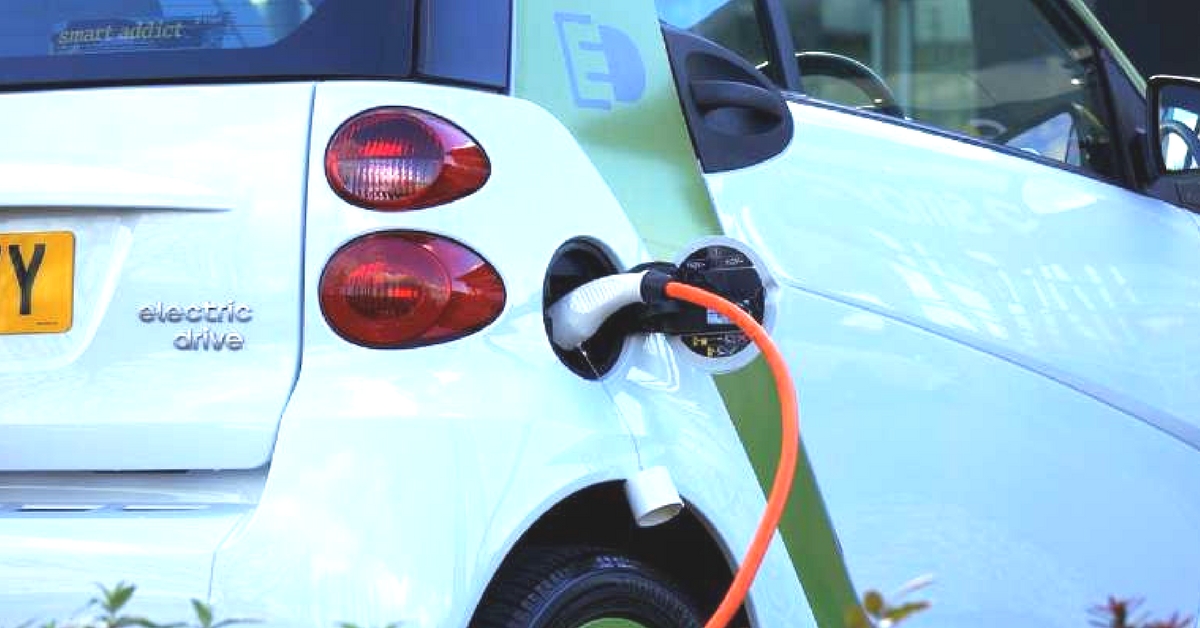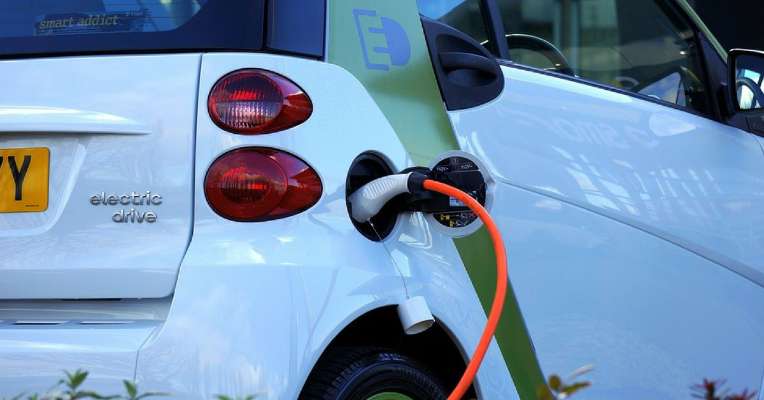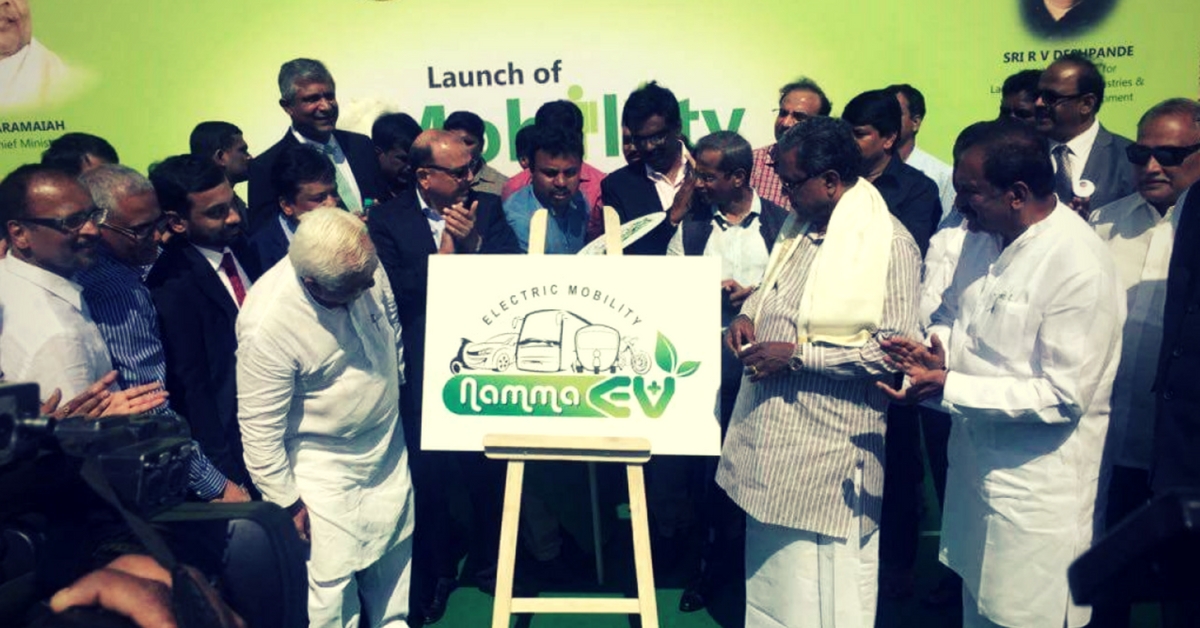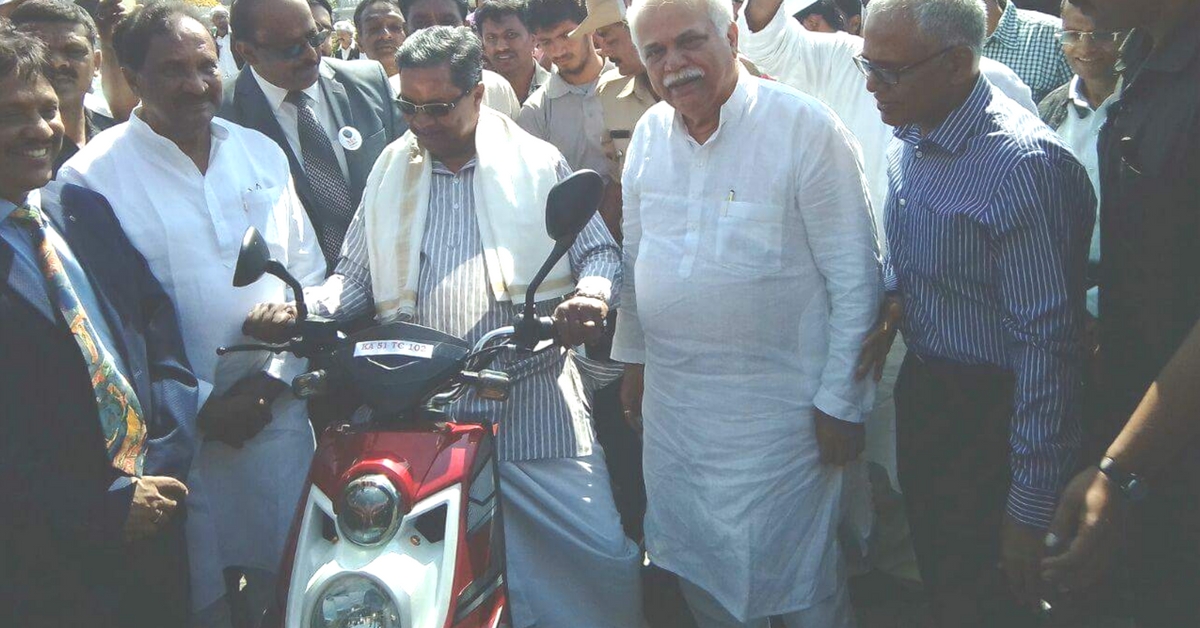How Karnataka is Becoming The Centrepiece of India’s Electric Vehicle Revolution
However, the state has a long way to go. In Bengaluru itself, there are only 6200 registered electric vehicles among the city's 72 lakh vehicles.

Last September, the Karnataka government outlined its plan to make the state the number one destination in India for manufacturing electric vehicles, releasing the landmark Karnataka Electric Vehicles and Energy Storage Policy.
After extensive consultation with industry representatives and domain experts from India and around the world, the government came out with this document outlining how it plans to incentivise and reward EV (Electric Vehicle) production.
With the advent of climate change and dwindling volumes of fossil fuel, governments around the world have been compelled to look for alternatives. It is the first state government to establish a full-fledged EV policy.
As a leading proponent of the Paris Climate Accord, India has set a lofty target of having 30% of vehicles in India as electric vehicles.
The key provisions of the Karnataka government’s EV policy include the development of manufacturing zones with readymade infrastructural capabilities; establishment of charging infrastructure with the aid of private investment; exemption from taxes on all-electric transport and non-transport vehicles including e-rickshaws and e-carts; and subsidise the use of charging and battery swapping stations, among others.
The policy also envisions the establishment of a top-notch research and innovation hub with state of the art facilities and an incubation centre, where the industry can collaborate with startups and engineers.

“Karnataka has a ready ecosystem for a vibrant automotive sector with a large pool of technical workforce, robust R&D capabilities and manufacturing expertise. The sector has deep backward linkages with metal industries, capital equipment, trucking, warehousing and logistics. It also has a strong forward linkage with dealerships, retails, credit and financing, advertising, repair and maintenance, petroleum products, gas stations and service parts etc.,” says the policy document.
One of the defining features of this initiative is that the government is seeking investments worth Rs 31,000 crore into EV manufacturing with the stated aim of creating over 55,000 jobs.
Those looking to apply for these jobs require the necessary skillsets. The plan is to establish a skill development centre based on a partnership between government and private players in the EV domain.
“The policy aims to create a conducive environment for the transition to electric vehicle environment from internal combustion engines. The government will make amendments to building by-laws for providing mandatory charging infrastructure in all high-rise buildings like IT parks, SEZs, malls, and apartments etc.,” said State industries minister RV Deshpande.
The development of the charging infrastructure, which is critical to any EV ecosystem, will also witness the participation of local municipal bodies and state-owned power distribution companies.
Read also: Your Next Car Should Be an Electric Car, and Here’s Why and How It Will Happen
Norway has often been cited as a model example of how governments can aid the process of developing an EV ecosystem with more than 100,000 such vehicles in a country of just 5.2 million people.
“The reason why Norway has such a high rate of EVs is heavy tax subsidy, but over time, we believe, it can be handled on a market basis. For that, some incentives on purchase is a good thing and should be considered by governments that have high ambitions. However, the charging infrastructure is what should be given the highest priority, and of course connecting the charging infrastructure to renewables and not coal,” said Vidar Helgesen, Norwegian Minister of Climate and Environment.
The Karnataka government, for example, will offer a capital subsidy of 25% on equipment/machinery subject to a maximum of Rs 10,00,000 per station for the first 100 fast charging stations in the state. Similar provisions are in place for battery switching/swapping stations.
Barely months after the State government released its policy document, the Bangalore Electric Supply Company (BESCOM) set up the first public electric vehicle charging station in Bengaluru (India’s first fast-charging EV station). For a nominal fee, citizens can access this charging station based out of its KR Circle office. The power distributions company is looking to open 11 more charging stations across the city within three months.
There are approximately 6,200 registered vehicles in Bengaluru, and this is only set to increase in the days to come with more manufacturers getting ready to enter this segment. Reports indicate that BESCOM charges Rs 4 per unit of electricity used to charge EVs at their station until it receives the necessary approval from the state electricity regulator. This is what BESCOM has proposed:
Rs 4.85 per unit of power between 6am–10pm
Rs 3.85 per unit of power between 10pm–6am
Rs 5 per unit for fast charging in the day and Rs 4.40 at night
Latest reports indicate that the government has identified 200 locations where they could install EV charging stations, and metro stations are high on the list of sites under consideration.
Thus far, the government has finished conducting feasibility studies for approximately 70 sites. BESCOM has also proposed installing charging points in residential areas along with separate meters.

Without the active participation of private players in the automobile industry, there is little any government can do to further the cause of EVs.
Earlier this year, Mahindra Electric rolled out a fleet of 50 eVerito electric cars in Bengaluru in partnership with the Baghirathi group, a Bengaluru-based shared mobility service provider. The automobile giant has also announced additional Rs 400 crore investment in Karnataka for the same for the next five years to “expand production capacity and to set up new EV technology innovation centres.”
Additionally, the Karnataka government announced earlier this year of its intention to procure EVs under the Centre’s Faster Adoption and Manufacturing of Hybrid & Electric Vehicles in India (FAME)-India scheme.
Speaking to the press, RV Deshpande, Minister for Large and Medium Industries & Infrastructure Development, Government of Karnataka, said that his government would buy and ply 100 four-wheelers, 500 three-wheelers and 40 electric buses in addition to setting up the requisite charging infrastructure across Bengaluru.

“Under the [FAME] scheme, a subsidy is provided to the extent of 60% of the purchase cost for electric buses, Rs 1.24 lakh for every electric four-wheeler and Rs 61,000 for every electric three-wheeler by the Central government,” says this Press Trust of India report. The future is indeed electric.
Despite the early promise of this movement towards EVs, there is a long way to go for the Karnataka government. In Bengaluru itself, there are only 6200 EVs among the city 72 lakh vehicles. A lot more work is required.
Like this story? Or have something to share? Write to us: [email protected], or connect with us on Facebook and Twitter.
NEW: Click here to get positive news on WhatsApp!
If you found our stories insightful, informative, or even just enjoyable, we invite you to consider making a voluntary payment to support the work we do at The Better India. Your contribution helps us continue producing quality content that educates, inspires, and drives positive change.
Choose one of the payment options below for your contribution-
By paying for the stories you value, you directly contribute to sustaining our efforts focused on making a difference in the world. Together, let’s ensure that impactful stories continue to be told and shared, enriching lives and communities alike.
Thank you for your support. Here are some frequently asked questions you might find helpful to know why you are contributing?


This story made me
-
97
-
121
-
89
-
167













